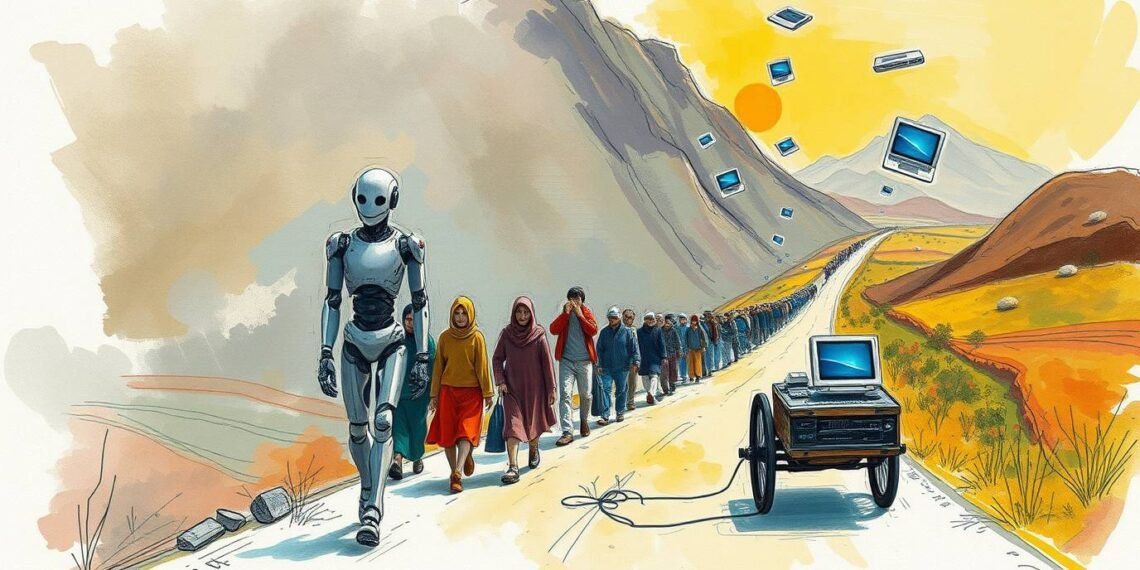The AI cognitive migration is underway, with many people joining AI caravans while others hesitate, uncertain if their destination justifies leaving. Christopher Stanton, an expert on the future of work and a professor at Harvard, noted the rapid spread of AI, labeling it an “extraordinarily fast-diffusing technology.” This quick uptake marks a distinct shift compared to previous technological advances, like personal computers and the internet, with Demis Hassabis, CEO of Google DeepMind, suggesting that AI may surpass the Industrial Revolution in impact and speed.
There is a growing interplay between human thought processes and technology, with some individuals integrating AI into their daily activities while others feel insecure about adapting to an unpredictable future. The divide between those enthusiastic about AI and those hesitating underscores the need for clear direction. Moreover, a more unsettling reality emerges-many may face managed displacement rather than true migration, as not everyone may find a role in the advancing AI landscape. This divide heightens existing fears about job security and the necessity for adaptation in a rapidly evolving environment.
The swift pace of change breeds anxiety; hesitation could lead to missed chances and potential long-term job loss. While some perceive this evolution as a growth opportunity, others may risk exclusion from an evolving workforce. Leaders, including Microsoft’s CEO Satya Nadella, acknowledge the complex reality of moving into an AI-driven future, revealing the unpredictability that comes with such transitions. Despite the urgency to adapt, the technology itself remains imperfect and unreliable, prompting critical questions about trust and effectiveness.
As organizations continuously strive to integrate AI, they face a significant gamble: whether productivity gains will outweigh the loss of human value. The aspiration is for AI to create shared prosperity, yet there’s a concern that the speed of change might outstrip humanity’s capacity to adapt wisely. Thus, the focus shifts from simply evaluating what AI offers to understanding who will benefit from the changes ahead, underlining the importance of inclusivity in shaping the future landscape.
The ainewsarticles.com article you just read is a brief synopsis; the original article can be found here: Read the Full Article…



